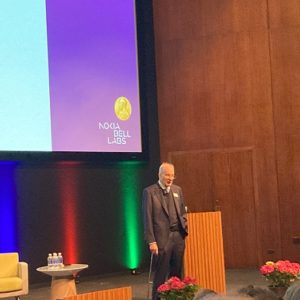Opinion: New Jersey’s Juniper OpenLab and Verizon Support the Community by Making a Difference in Students’ Lives
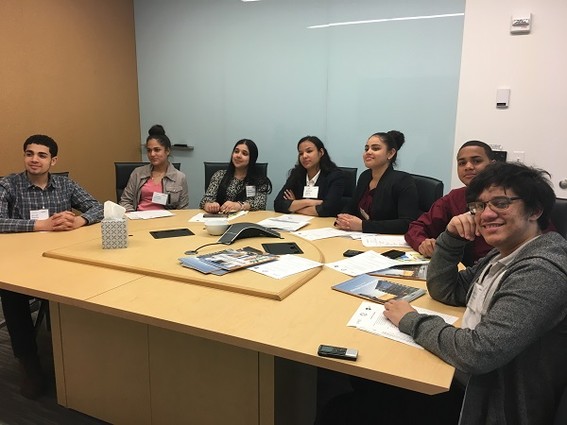
One of NJTechWeekly.com’s favorite things to do is catch New Jersey tech companies in the act of giving back to the community. That’s why I spent a few hours in late April with Juniper Networks and Verizon at Juniper’s OpenLab facility in Bridgewater.
On April 23, 33 juniors from New York’s Manhattan Bridges High School, a NAF academy, spent the day at OpenLab for an enrichment program that hones the “soft skills” needed to pursue an internship or a full-time equivalent (FTE) position.
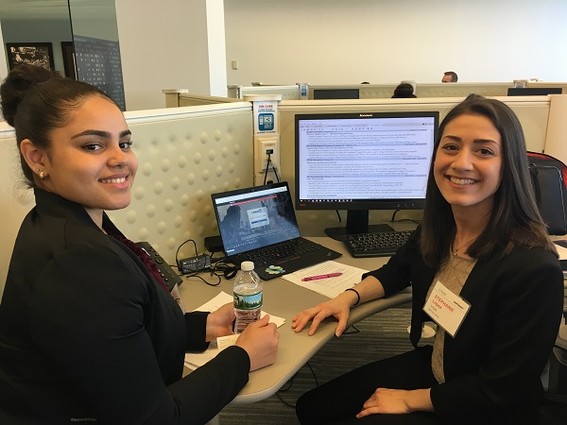
They received practical insights via one-on-one sessions with volunteers on how to improve their resumes; and they participated in mock interviews with employees of Juniper and Verizon.
Juniper became involved in this mentoring program as a way of giving back, said Jerry Passione, OpenLab general manager. “When we launched OpenLab, and our expanded Juniper New Jersey presence six years ago, we wanted to be a more integral part of the community,” he explained. “We’ve built up this relationship with NAF over time, and we’ve been working with Manhattan Bridges for over five years. This is something we need to do, and are expected to do, in terms of our social and corporate responsibility to support the community and student development. But, more importantly, it is something that we want to do.”
This program represented Juniper and Verizon’s third engagement with the Manhattan Bridges students so far this year, and the male-female mix among the students was roughly 50-50.
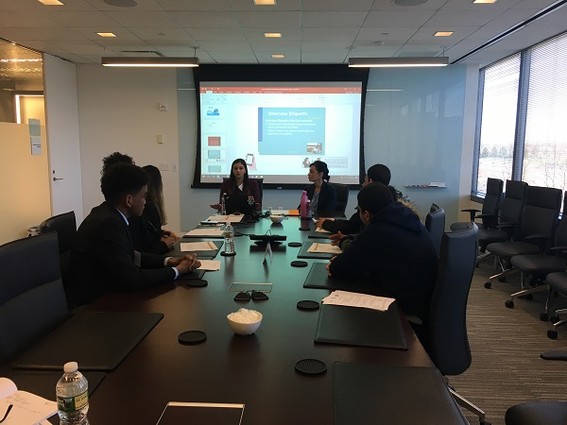
The students were given some first-rate advice in conjunction with their mock interviews. For example, they were told to be sure to ask for a business card after an interview, and then send a thank-you email.
“The reason this is important is that you want to stand out from the hundreds of other applicants,” one of the mentors told a group. In your thank-you note, she said, mention something for which they’ll remember you, such as a lab tour or a discussion about basketball, or say that you enjoyed meeting the rest of the team. Another mentor advised students to send the thank-you note from a proper email address, “not Latina37@gmail.com,” but one that looks appropriate for business.
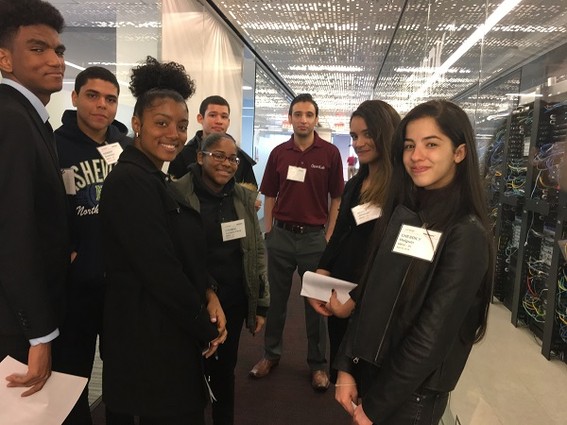
The students were thankful for this attention. After giving me a firm handshake and looking me in the eye, a couple of female students answered my questions about what they had learned. “We received information on how to communicate and conduct ourselves in an interview,” Leandra Rodriguez said.
Jessica Valera said, “I learned how to dress for an interview and how to build my resume to look for jobs. I also got to talk to a lot of professionals about their careers, and they got to learn about me and that I love computer science.”
Madoris Santana noted that she had learned how to work in a professional environment, how to treat others with respect and how to communicate with others professionally. “And it was really inspiring because it made me want to keep going for the goals I’m hoping for in computers.”
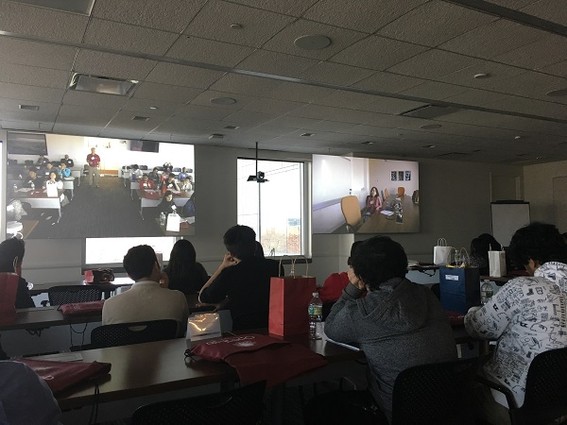
Via a video link, the students heard from Maria Caraballo, a Juniper director based in Amsterdam, who oversees the pre-sales labs in Europe, as well as the Europe-based OpenLab educational programs. Maria shared a little bit about her background and experiences as a Hispanic who works both in a STEM field and for an American company.
Near the end of the program, students as 3-student teams gave three-minute status presentation about their progress on their semester-long capstone projects (due at the end of June), the topic of which is what they think is the most impactful technology to emerge in the last five years.
Before they gave their quick status presentations, the students were reminded to be enthusiastic and to make the most of the few minutes they had; and if they “mess up,” to keep going on. The presentations, which varied from a description of a device that makes light from gravity to a discussion on reversing paralysis, gave the students a chance to speak before others and learn that they can communicate with adults as well as with their fellow pupils.
“For this capstone project, the student teams will need to present their view of the technology and cite the reasons or data points to back up their proposal,” Passione told us. “They will need to do some research and speak with fellow students, teachers, friends and others. They will get a very quick 10 minutes to present as a team, and they will be scored by a panel of Juniper and Verizon judges. The top three teams will receive small prizes.”
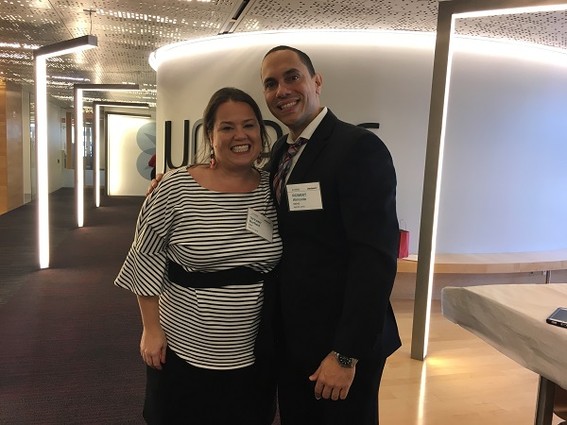
Speaking about the capstone project, Tiffany Barfield of NAF said, “This lets them know what the college experience might be like. They have to work in teams with people who may not be in their classes. They learn to collaborate. We monitor them along the way, and in June they present. It really gives them that college-to-career experience.”
Robert Almonte, the NAF program coordinator at Manhattan Bridges High School, called both Juniper and Verizon “amazing companies,” and noted that the mentors were all volunteers. “In addition to the program held at the corporate locations, the volunteers usually go to our school once a year and conduct a program on ‘A Day in the Life of an Engineer,’” he said. Almonte added that it’s also very helpful to the students.
Barfield said that the students also visited the Verizon facility in Bedminster in February to engage in certain hands-on STEM exercises and learn about different wireless labs.
“This really gives them a ‘behind-the-scenes’ look at what it’s like to work in corporate America. Seeing the employees in their home base is something that has really made an impression on these students,” she said.
NJTechWeekly.com salutes Juniper and Verizon for developing a project that will impact the individual students who go through it. It was my impression that these students really did go away from the program with a better understanding of how to fit into the workplace, a determination to do so, and the tools they’ll need to help make that happen.

